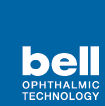Donald and Marti Nissley brought a few goats — Billy, Spot and Honey Bun — into the family to control the grass in their pasture. “The goats do the job, are friendly and nice to have around,” according to Mr. Nissley.
Of course, big goats eventually have little goats and when Spot had two kids, the Nissleys knew right away something was wrong with the baby Toodles. Her eyes were cloudy, and the other goats shunned her. Their veterinarian, Dr. Teri Coon, confirmed that Toodles was blinded by cataracts.
Seeking help, the Nissleys were referred to the New Bolton Center for Large Animals at the University of Pennsylvania’s School of Veterinary Medicine.
“There’s no goat cataract surgery reported in the literature,” said Dr. Braidee Foote, New Bolton’s ophthalmology fellow. “It doesn’t mean it’s never been done, but no one’s ever written about it.”
Just removing the cataracts would improve her vision, leaving Toodles with fuzzy, farsighted, unfocused vision. That would be enough for a goat to safely get around but it wasn’t enough for the Nissleys. Was there anything else the vets could do?
Inserting artificial lenses are common for dogs and horses, but the vets had never heard about performing the surgery on a goat. Dr. Catherine Nunnery, New Bolton Center’s ophthalmologist, searched for lenses that would work for a goat and they found they were able to adapt equipment made for dogs.
The surgery was an unqualified success.
During a visit to see Toodles in recovery, “We called her name,” Marti Nissley said. “She ran right up to us!”
Toodles is now back home, doing all the things that goats do on a farm.
The Nissleys won’t say exactly how much they spent on Toodles’ surgery but
“It cost about five times what my two cataracts cost,” Donald Nissley said.
“And we don’t have goat insurance,” added his wife.
But they both agreed it was worth it.
